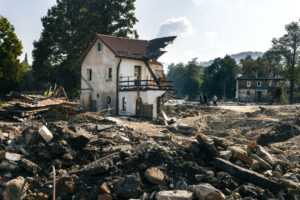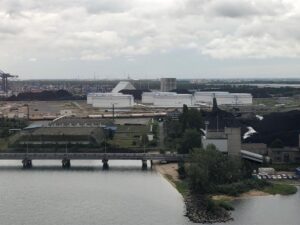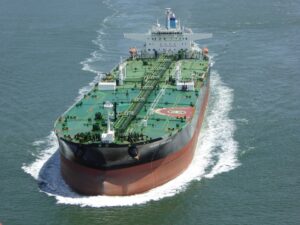What goes on in Poland on the 9th of April.
Naimski: Since 2001 Poland could have lost up to 100 billion zlotys due to the lack of diversification
Between 2001 and 2018, the energy dependence from Russia cost Poland about 50 billion zlotys if not up to 100 billion. Poland lost a lot of money because the price of gas given by Russian supplier was higher than the market price, said the Government Plenipotentiary for the Strategic Energy Infrastructure, Piotr Naimski, opening the Polish Nationwide Energy Summit in Gdańsk, which is held under the media patronage of BiznesAlert.pl.
Strategic decisions
Securing the energy supplies which have reasonable price is and will be the main task of decision makers dealing with the energy issues. We must take care about Polish security in various ways, and the energy security is an non-negotiable part our homeland security. It must be founded on several elements: raw materials, technologies for their conversion into energy, infrastructure for energy transmission to recipients. Nevertheless we also need some vision, as decisions made in the energy sector today will have an impact on energy market in future. We take them today, thinking about the future of our children and grandchildren. Similarly we bear the consequences of decisions made after 40-50 years ago. Decisions we are talking about are not only business decisions, because it is hard to count what will be the profitability of capital in 30 years as we deal with variable factors on energy market which are not easy to predict. That means that all responsibility rests on politicians’ shoulders and government should have tools in hands to be able to make decisions, said Naimski.
Exploit raw materials
In Poland we have a coal, some natural gas, limited amount of wind and sun and tiny water resources. If we are going to base our energy security on the available raw materials, first of all we have to take into account what we have and, then, stable supplies of other raw materials from abroad, said Naimski.
We have enough coal to use it till 2040-2050. We have less natural gas, therefore we must seek supplies from various sources, and aim to get the competitive prices for final customers. The Baltic Pipe pipeline building, the expansion of the LNG terminal in Świnoujście, and the construction a floating terminal in the Gdansk Bay support this goal. All these projects will allow us to
diversify gas supplies to Poland and become independent of the monopolistic supplier. Between 2001 and 2018, the energy dependence from Russia cost Poland about 50 billion zlotys if not up to 100 billion. Poland lost a lot of money because the price of gas given by Russian supplier was higher than the market price, said Piotr Naimski.
When it comes to energy generation, we are building the last large coal power unit in Ostrołęka. Coal-fired power plants in Kozienice or Opole which are putting into service, will operate for the next 25-30 years. We must provide them with a raw material that will come from Polish resources. We need to build power lines that will send energy all over the country. PSE implements projects in this field. This a huge challenge for companies dealing with energy distribution, said Naimski.
Implement innovations
We have to be innovative. In order to maintain coal as one of the energy sources, we also have to develop RES to meet the EU emission standards. It might be wind energy for instance. Poland has at the moment 6 GW of installed capacity in onshore. We will try to move wind farms to the sea, because they are more efficient there. Offshore also allows to avoid potential social conflicts which may be triggered by onshore which part of society regards as technology affecting human activity. We will start to build offshore installation beginning from 2020. The Ministry of Energy is working on offshore bill, stressed Naimski.
We support the prosumer program. It concerns the possibility of low energy production by households in consultation with suppliers. If there are solar panels and small windmills on Polish homes, we will have the dispersion of energy production what increases security, he said. Cogeneration is the most effective consumption of raw material – mainly coal, but also natural gas, and we will also support it, he added.
New technologies require support and attention, and we are going through revolution in this field. If it turns out that mass energy stores will be available at an affordable price, we will look at the wind differently. We will not then need energy sources based on traditional raw materials. It’s a matter of 5, 10, maybe 15 years, but this is not predictable. We have been talking about coal gasification for years. Some countries produce fuel from coal, but it is still unprofitable.
Hydrogen technologies are also included in the Polish energy strategy. There is a room for a nuclear energy in our energy mix. We will not be able to reach a zero-emission economy without this source. In 2033, we want to have the first nuclear unit, said Naimski.
Cooperation with neighbors
We want to cooperate with our neighbors. Today, the energy flow goes beyond borders. That is why we are implementing a program of synchronizing the energy systems of Lithuania, Latvia and Estonia with Europe through Poland. The project has the support of all four governments and the EC, and it is entering the technical phase. We also build interconnectors between the Polish energy system and the systems of Lithuania, Slovakia and the Czech Republic. This is our contribution to regional cooperation, which is the responsibility of EU countries, and strengthens the security of Europe, said Naimski in Gdańsk.








